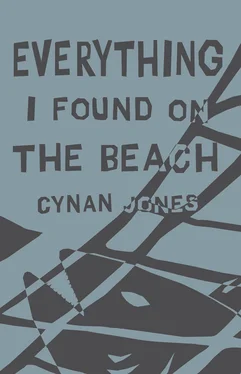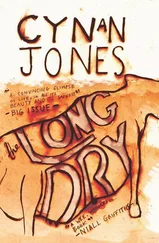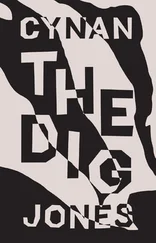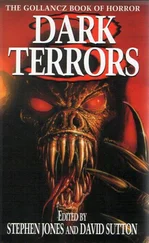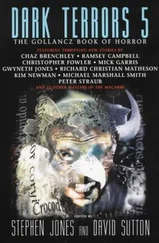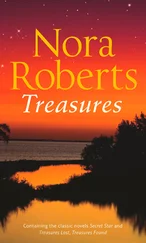And she remembered him. This friend of Danny’s with his strange-meaning name. How he was more methodical and quiet than Danny, and less flashy. And how he brought up the fish, and helped her with the rod when she caught her first string of mackerel and they came wheeling and flapping into the boat and she was screaming and laughing and seeing the broad, proud smile of her man. But how Hold had taken the rod without taking it off her and brought in the line and flicked off the mackerel with some calm respect and sense of his own place that she felt this richness of, as Danny steered the boat idling through the water. And she had felt from this man she was meeting for the first time great patience and great solidity and some great power of decision that made her feel very safe around him, as if she knew he would never alter his mind about her. And it made her love Danny more, that he had a friend like this.
And that same image had balled at them, then, in that one phrase he had said. That she should come out. And they had understood, together, that at all costs there must be no private space. Not to walk too close to the edge of the cliff.
“Will you do the window for me?” she asked.
“Sure,” he said. “You think it was kids?”
She nodded. She felt the need to explain. “I still can’t go in there.”
“It’s fine,” he said.
He went into the shed and put the padlock with the key still in it down on the shelf by the broken window. Glass had gone over the shelf and onto the floor and Holden could see the tarmac-covered chipping that had come through the window.
Dust was on the other window panels and looked scaly in the last of the sun. At the window corners the sun caught in the spiderwebs, vaguely bluish.
Hold picked up the chipping and threw it from the door and brushed off the glass splinters from the window shelf.
He could feel Danny’s presence here. Or the absence of him that he could usually avoid.
The dust had settled quickly over the place. “I know how it will go. She will do her best to carry on, to stay positive. But this will come down on her, this dust. This tiredness and lack of use. And then she’ll be dry and worn out and beaten.” He felt great pain at knowing this with such certainty.
“I should have been firmer,” he said to himself. “I should have insisted he got it checked out. The one time I didn’t push, that I took a step back. It was part of his character too,” thought Hold. “To bury his head in the sand. Not face responsibility. But he should have got it looked at. I should have pushed him harder.”
He tipped one tub of screws into another to empty a tub and put into it the broken glass and squatted and picked up the larger fragments from the floor.
The rods and tools were around the walls.
He went through a pile of wood and picked out some hardboard and took down a saw from a nail and found in the rack of small tools a measuring tape.
He cut the piece to the size of the window panel, measuring with the rusted tape and marking his measures with a nail, and he set the cut piece into the hole and pinned it up.
“This is not good, us both like this,” he said, and pushed that out from his mind. “This?” he asked himself. “There isn’t a this.”
He gave one of the uprights an absent push, as if to see that the shed had solidity, and perhaps in some way in that act he was testing his own strength.
I wonder if Jake comes in here. I wonder if he comes in here to his father’s things. I wonder if he remembers. I wonder if he knows where the key is and comes secretly in here and feels okay.
Hold looked at the things. Such strange refuse we leave. In the corner, the hexagons of an old wasps’ nest, husks of paper.
He looked at the old bait fridge, all pitted and measled with rust, and looked in it and seeing it empty found the plug and unplugged it.
He picked up the old metal detector and switched it on to see if it worked and waved it about and it sang shrilly at the metal but it was somehow as if it was Danny the machine detected.
“Hey, Danny,” he said. And there was thirty years in it, and all the three years of his absence.
He took the metal detector with him, and locked up the shed.

“Why don’t you stay for supper?” she said.
“I have the nets out.”
“Doesn’t stop you eating supper,” Cara said.
“Are you shooting tonight?” asked the kid.
“No, Jake,” said his mother, not as the answer, just to stop him before he started. But he had his father’s irresistible capacity.
“Yeah, I’m shooting tonight.”
He felt Cara look at him. “It won’t be such a good night,” he said to put the boy off. “Too much moon. That’s good for the nets though.” He was trying to feed the boy little knowledges always. “Something draws them. I don’t know what it is. But something draws them up in that moon.”
The kid was looking at him. He was ignoring the mysterious thing Hold was doing. “Why isn’t it good for shooting?” It was all about the gun. It was like he didn’t want to know about the fish.
“If you’re staying, that’s it with the talk,” Cara said.

They took the tripe home in a black bin sack. On the women’s orders they took it into the garden and hung it like some great shroud and then washed the clinging gouts of cud and the stomach liquids off then they carried it inside like some foul painter’s sheet and butchered it up on the table.
The place stank for weeks with the intestinal, unmistakable odor of the tripe cooking but it was good solid food. It had this strange effect on the house, like the bringing home of a big fish, and Grzegorz felt a type of pride. All the time, they brought back what they could without morally resorting in their minds to stealing. It was just the leftover stuff, the things gone to waste, the heavy, clubby bones of beef that they put into the flaczki, the rich tripe soup.
There was the odor, though, the odor that stuck about the house as if it had crept into the fabrics of the place and mixed up with the sharp permanent smell of the vinegar from always pickling vegetables, the smells of the habit of storage, of having to make it through winter. To Grzegorz, it was the smell of poorness, of home. Of the leaden humbleness of his grandparents. Of his own naivety to think that he could live that way, with that little, in the world as it was now.
He thought of the farm. “It would not be possible,” he thought. “We’ve seen other things now, we want other things. It would never have been possible to stay there.”
One by one the tiny farms, most of them less than ten acres, had folded in. At first, it was like watching candles guttering out; but then, with the big European supermarkets moving into the town suburbs with their cheaper prices, the farms just seemed to be snuffed, one by one, by this unbeatable instrument of economy wielded at arm’s length. “We are a poor people, we have to buy the cheapest,” thought Grzegorz. “You couldn’t expect people to fight them.” He thought bitterly of the old timber house, the warm, sweet smell of animals, the constant smell of food cooking, like now, food with this lingering odor.
The government was trying to force the farms to consolidate, trying to ball them all up and remold them into bigger, more competitive units so it could feasibly ask for European grants. But the people involved were balled up in the wax of these policies. Now the foreigners were coming in and buying up vast tracts of land that cost them next to nothing, turning them into holiday resorts and golf courses. “We could never have stayed,” he told himself. These farms, some two million or so of them, had survived the Russians, the Germans, and Communism but could not beat this simple mathematical annihilation, this new invasion of wealthy outsiders. He knew in his heart, with a stench of guilt, that they could never have taken on the farm anyway, that it was an illusion, that it was better the choice had been crushed.
Читать дальше
